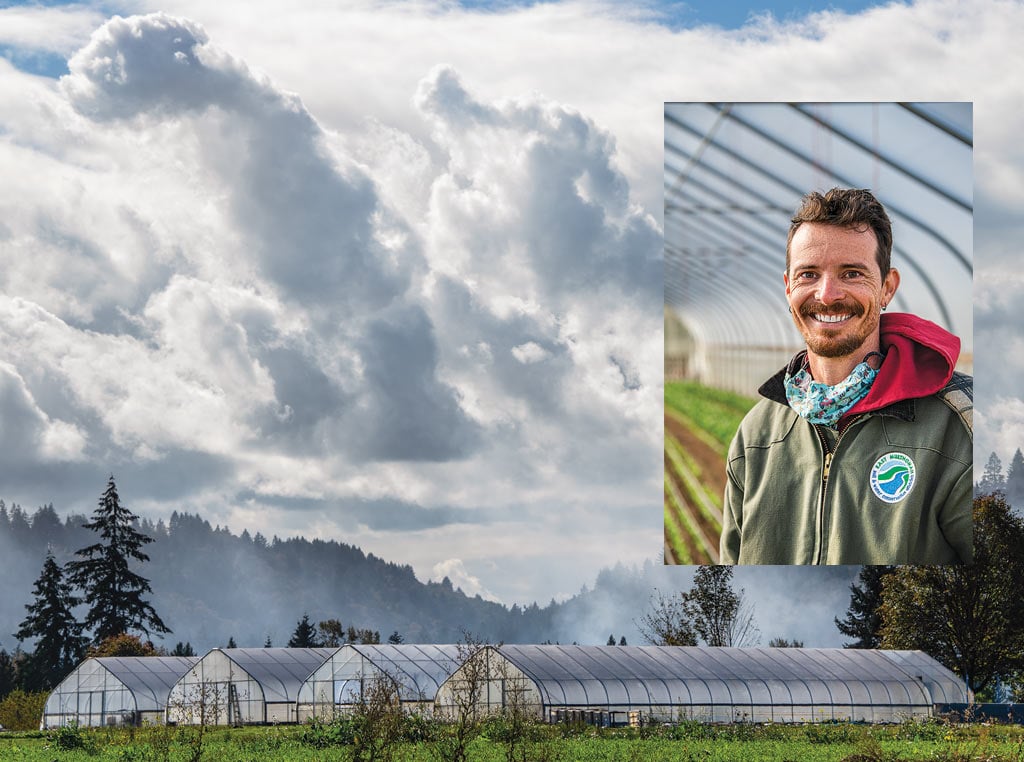
The Headwaters Farm incubator program occupies 36 acres of a 60-acre farm owned by the East Multnomah Soil and Water Conservation District.
Agriculture, Education March 01, 2021
Helping Hands
Incubator gives new farmers a boost.
Lindsay Goldberg is getting ready to leave the nest. After five years in the incubator environment of Headwaters Farm, the young cut flower farmer is graduating this fall and looking to establish Fawn Lily Farm somewhere around Portland, Oregon.
Goldberg worked on farms in California before, and even grew flowers for two years near Portland before joining the Headwaters cohort in 2017. But now she’s taking her business to the next level after five more years of experience, experiments, training, low-cost access to land and tools, and concentrating on what it takes to survive in a specialized industry.
“The biggest thing with Headwaters is you can familiarize yourself with the types of systems and tools that you’re going to need to have a successful business,” Goldberg explains. “You can work with the BCS and the power harrow and you can grow in a hoop house and decide if these things work for you or not instead of investing in something right away and then realizing that wasn’t the thing for you. So when you leave, you have a good idea of, ‘OK, I’m going to need to spend this amount of money on this list of things.’”
Goldberg’s farm is one of 15 operations in the incubator program, which is operated by the East Multnomah Soil and Water Conservation District (EMSWCD). The 36-acre incubator plot east of Portland is a patchwork of color and texture: flowers, salad greens, potatoes, vegetables of all sorts, and more. Since the incubator program started nine seasons ago, it has been home to crops ranging from berries to medicinal herbs, as well as poultry and rabbits.
So far, 14 farms have graduated from the incubator, says Rowan Steele, who runs the program for the district. Participants were selected by a review panel that looked at their farming and management experience (unlike some incubators, Headwaters Farm isn’t an entry-level introduction to farming) as well as their business plans, fit with the site, level of preparation, and commitment to stewardship practices.
That combination allows the district to tackle several challenges at once on the played-out, 60-acre nursery it bought for $1.3 million. Headwaters Farm is a showcase for conservation practices that range from riparian buffers to pollinator habitat. It’s protected forever from urban sprawl. And it’s a launch pad for young farmers like Goldberg, who often struggle to find their way into a farm scene short on young growers and constrained by high land prices.
Bridging the gap. Steele points out that the Portland area is fortunate to have several incubators that introduce would-be farmers to agriculture, so the Headwaters Farm incubator supports more experienced growers instead.
“I like to think of us as bridging the gap from apprenticeship to stewardship,” Steele says. “We’re taking somebody who has experience working on other farms and giving them the opportunity in a safe, subsidized environment to grow into a mature farm business, because once we get somebody to a mature farm business, they can tap into all the other resources that established farmers can get through FSA and NRCS and soil and water conservation districts and grant programs.”
The ideal Headwaters candidate has at least three years of farming experience, including at least a year leading crews or overseeing farm systems like propagation, harvest, or irrigation—skills Steele says translate to successful farm business management.
Once selected for the program, farmers pay a $500 participation fee and have an opportunity to rent land at an introductory cost of $150 per acre. That rent climbs each year until the farmer is paying Headwater Farms’ full fare of $750 per acre by year five. Steele and his team built a rinse basin powered by a hot tub pump and salad spinners fashioned from clothes washers. The district maintains a shared irrigation system and a solar array that powers the farm. A shed is stocked with hand tools for borrowing. Farmers can rent backpack sprayers (which they can use only with organic products), rototillers, tractors, and implements at very low hourly rates.
Nicki Passarella, in her fourth season at Headwaters Farm, produces an array of annual vegetables on half an acre of outdoor land and in half a hoop house. She values not only the access to the incubator’s tools, but the luxury of not having to drop everything to struggle to fix a broken machine.
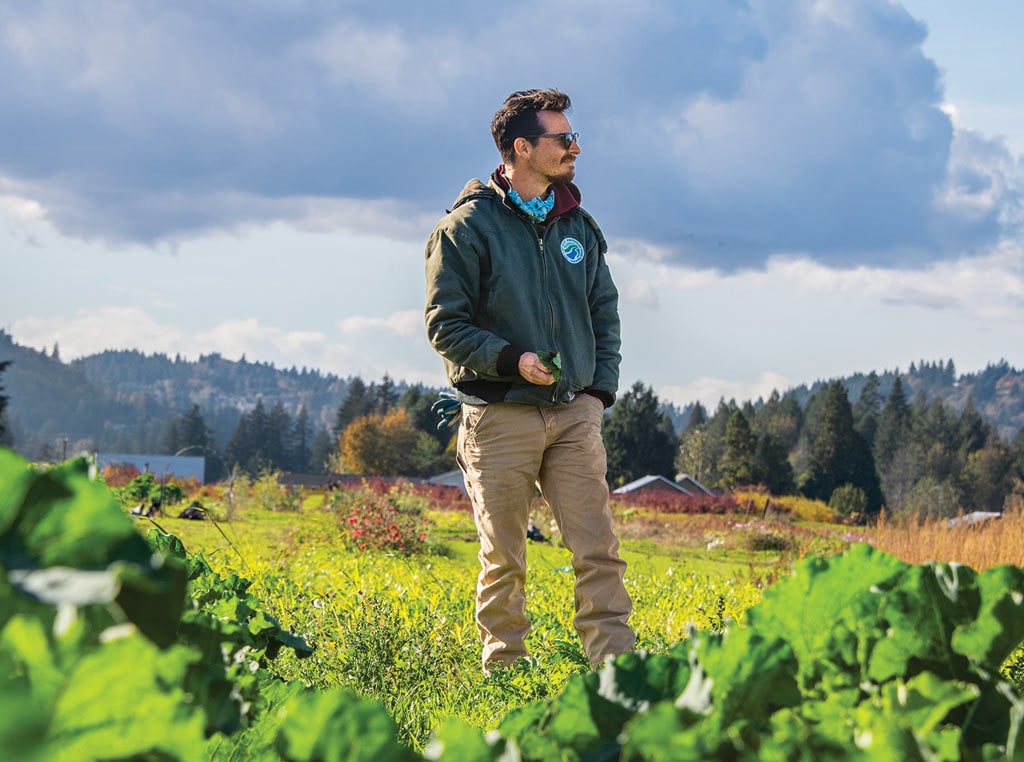
Steele is an advisor, cheerleader, and instructor for incubator farmers.
Headspace. “We can have the headspace to do all the other things that we need to grow a successful business because we have support from the district that will keep maintenance happening for the tools and keep the fields mowed around,” she says. “In the first five years, it allows us the freedom to work on making our business vibrant and successful instead of just maintaining our heads above water or falling under.”
That’s exactly what the district board wanted, according to Steele.
“While they’re here, we’re expecting them to refine their production practices, make investments that are practical, build farm networks, understand who they can reach out to when something breaks or where to source things from or who to talk to when they have a certain pest,” Steele says. “After five years, the idea is that they’ve put enough of those pieces together and have that formal business plan of what they’ve accomplished and where they’re going so they can access financing.”
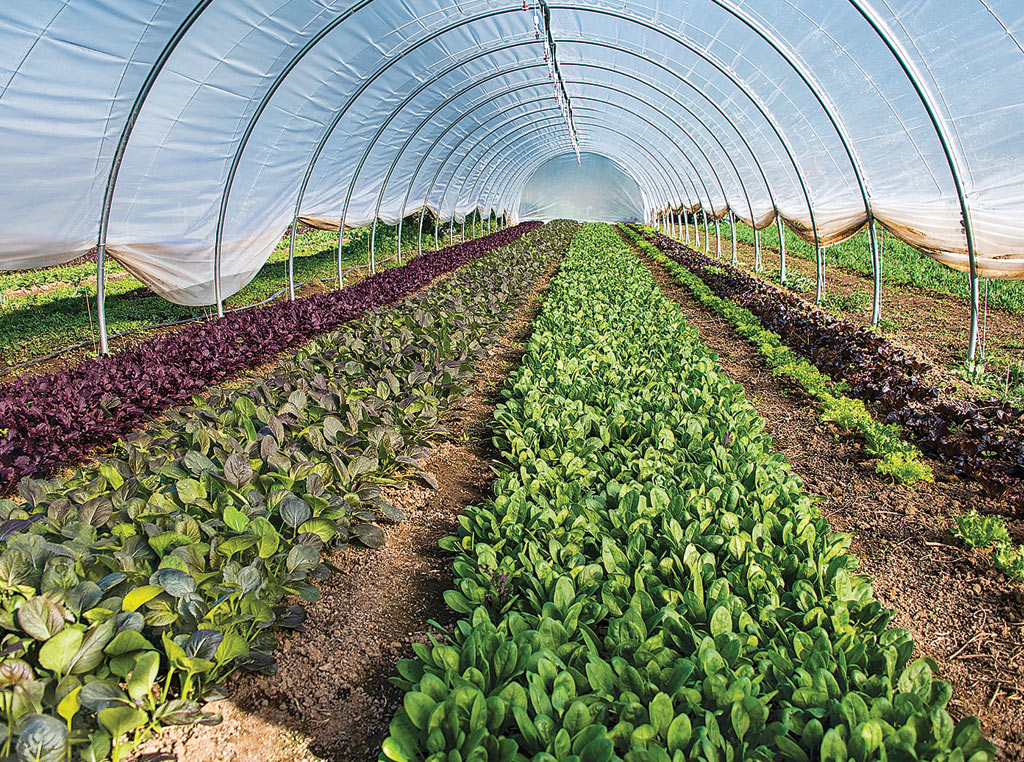
The farm networks and helpful information often originate within the community of Headwaters Farm growers, notes Passarella. Questions and answers pepper a group text string. What’s this blotch on my leaves? Any suggestions on a good winter carrot variety? Does anybody want to team up on an order of berry boxes to save on shipping costs? “I knew it would be cool to farm alongside a lot of other small farmers, but it’s actually become like a network of support,” says Passarella, who is farming on her own this year alongside long-time farm partner Irina Schabram. “I think that sense of community is really, really helpful for both the tangibles and the intangibles.”
Most of the 14 farms that have graduated from the incubator have stayed connected. That’s helped some share leases or assets—buying land is still out of reach for most, and Steele promotes leases as a way to farm while building other kinds of equity. It’s also allowed them to put their training, networks, and conservation ethics to work in the Portland area. That’s a win for the farmers, local agriculture, and the district.
“The interest I see is their goal is not to farm in community here then go silo themselves in the middle of nowhere where they can afford farmland two hours from their markets,” he says. “They’d rather stay close to their markets. They’d rather keep their connections strong. They’d rather build on what they started here. That’s what I’m most excited about.”
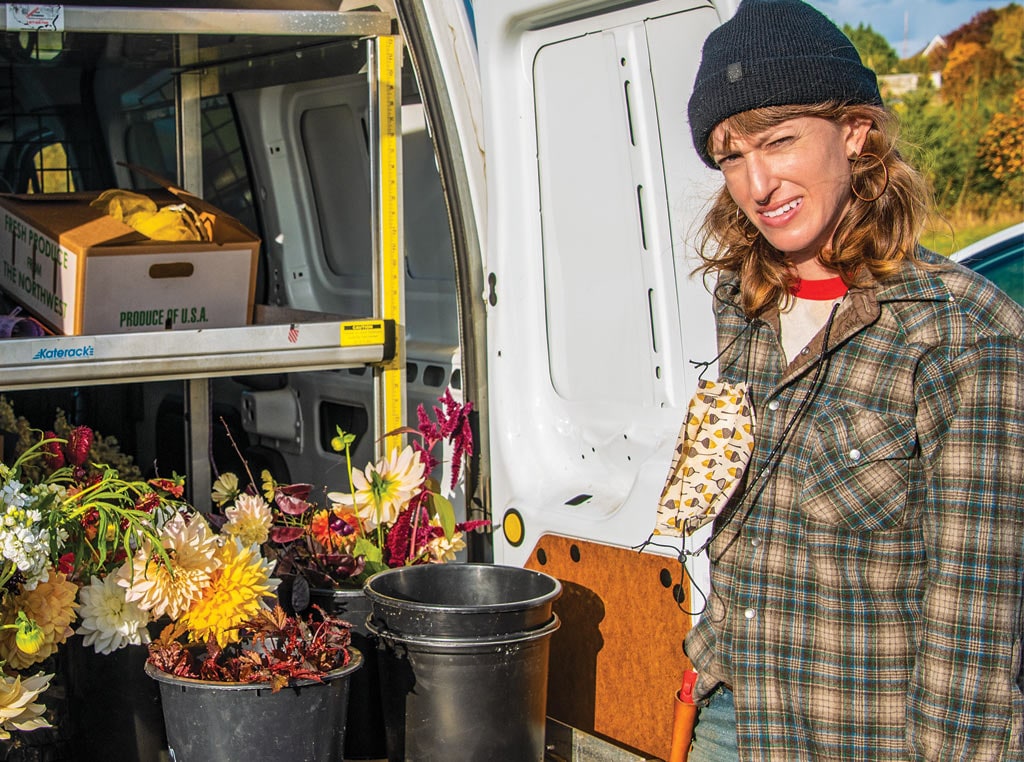
Lindsay Goldberg has spent five years at Headwaters building her flower business. Market crops are popular.
Read More

Agriculture, Ag Tech
Ag Data Is Beautiful
Digital sattellite data paints farm masterpieces.
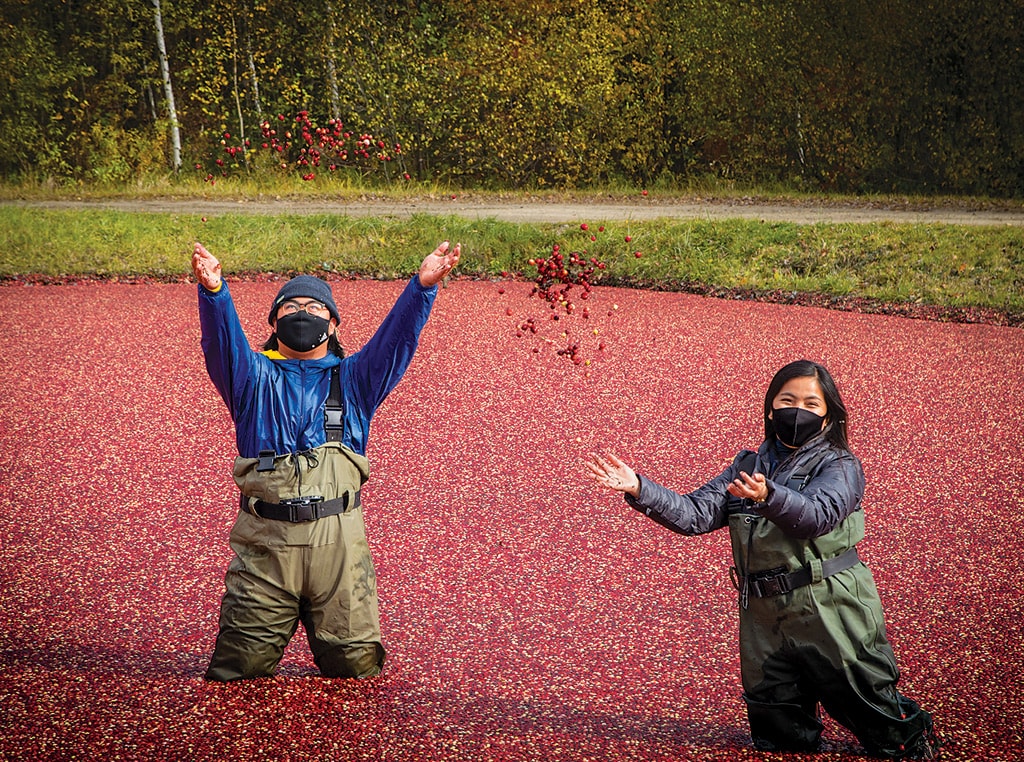
Agriculture, Specialty/Niche
Year-round Tourism
Muskoka farm develops innovative ways to incorporate four-season tourism attractions.
